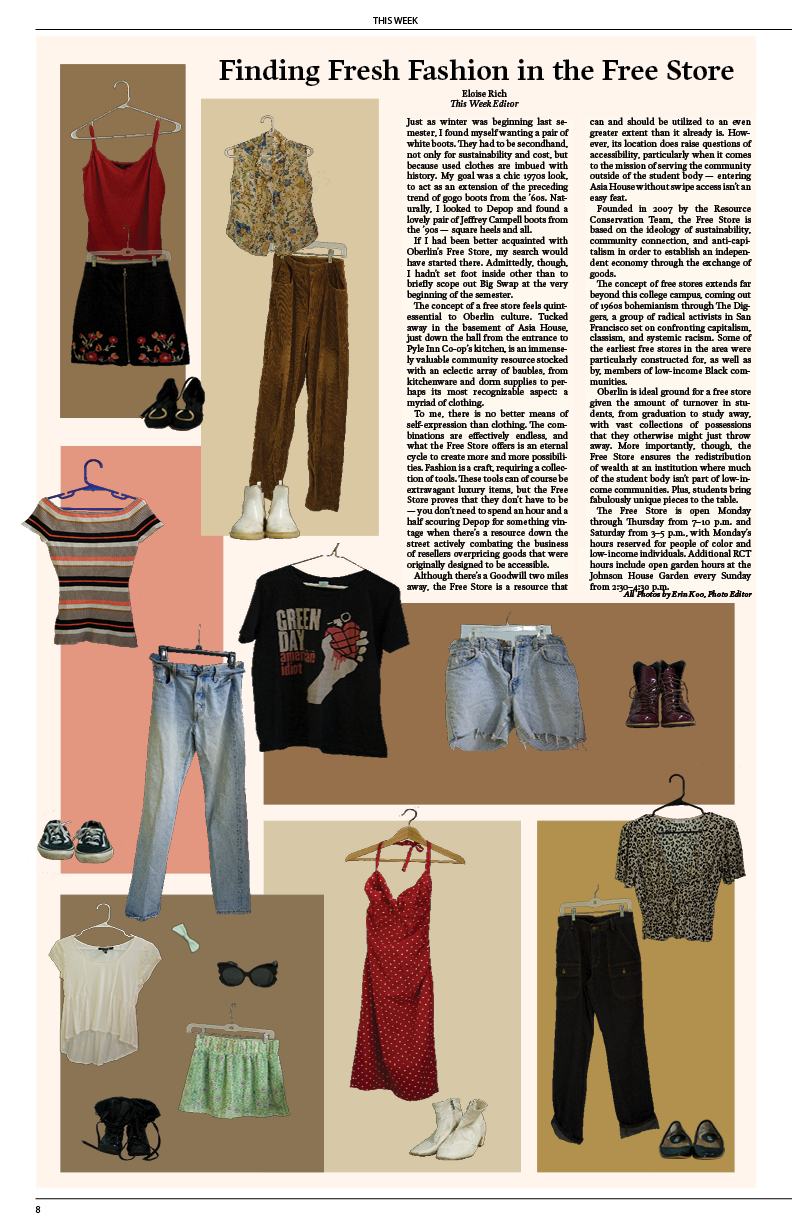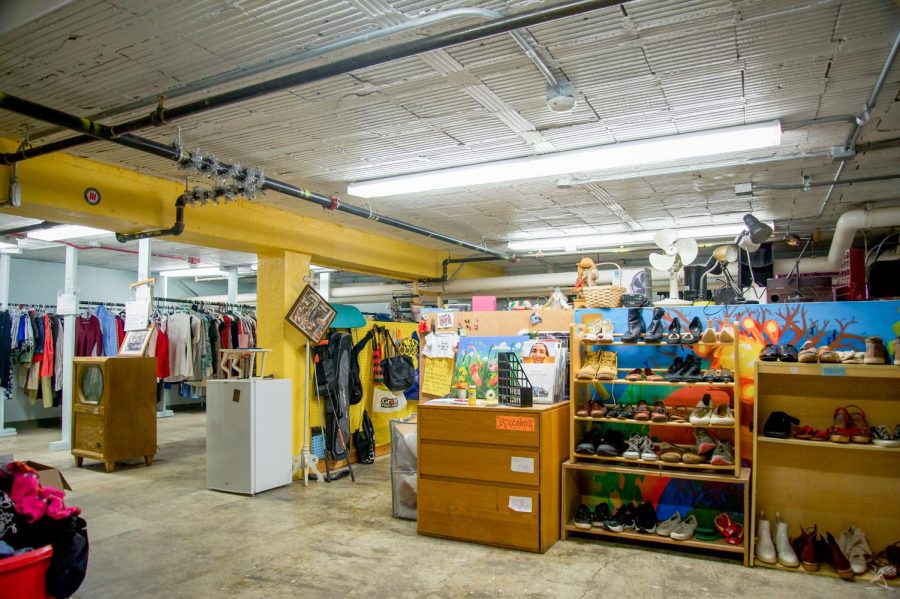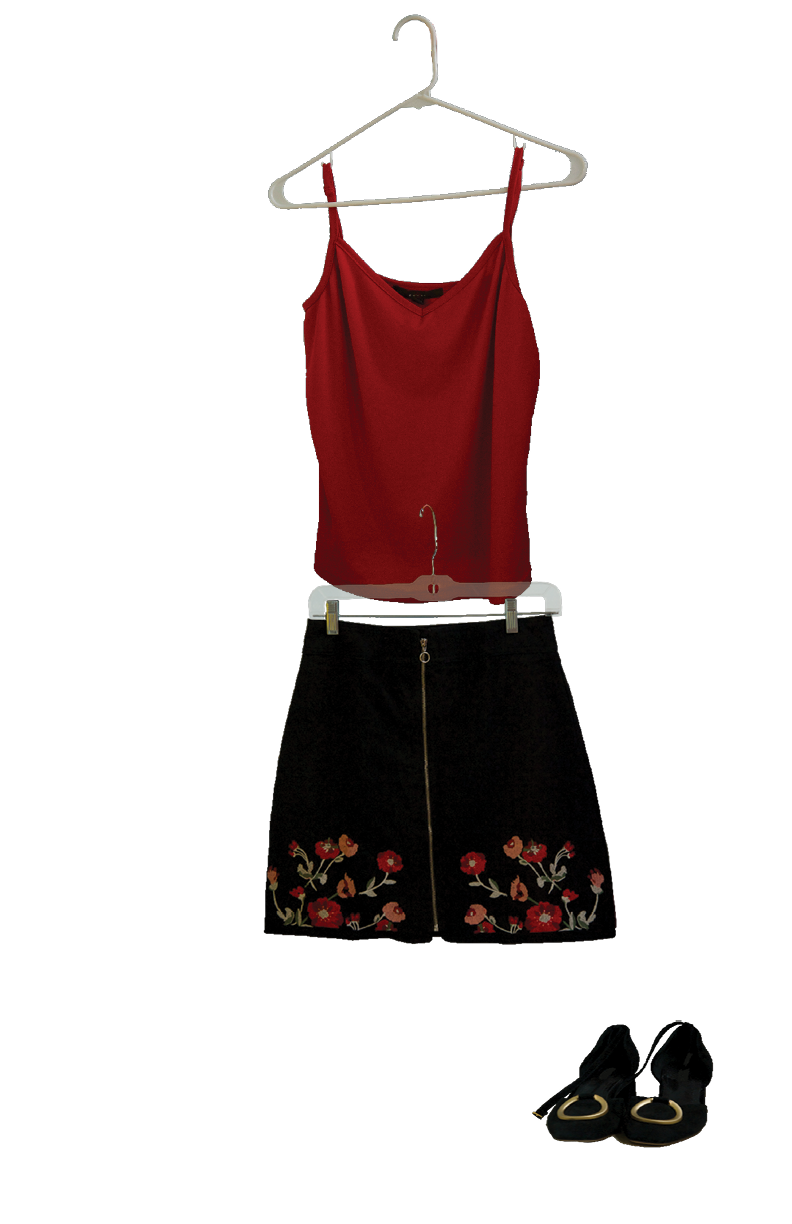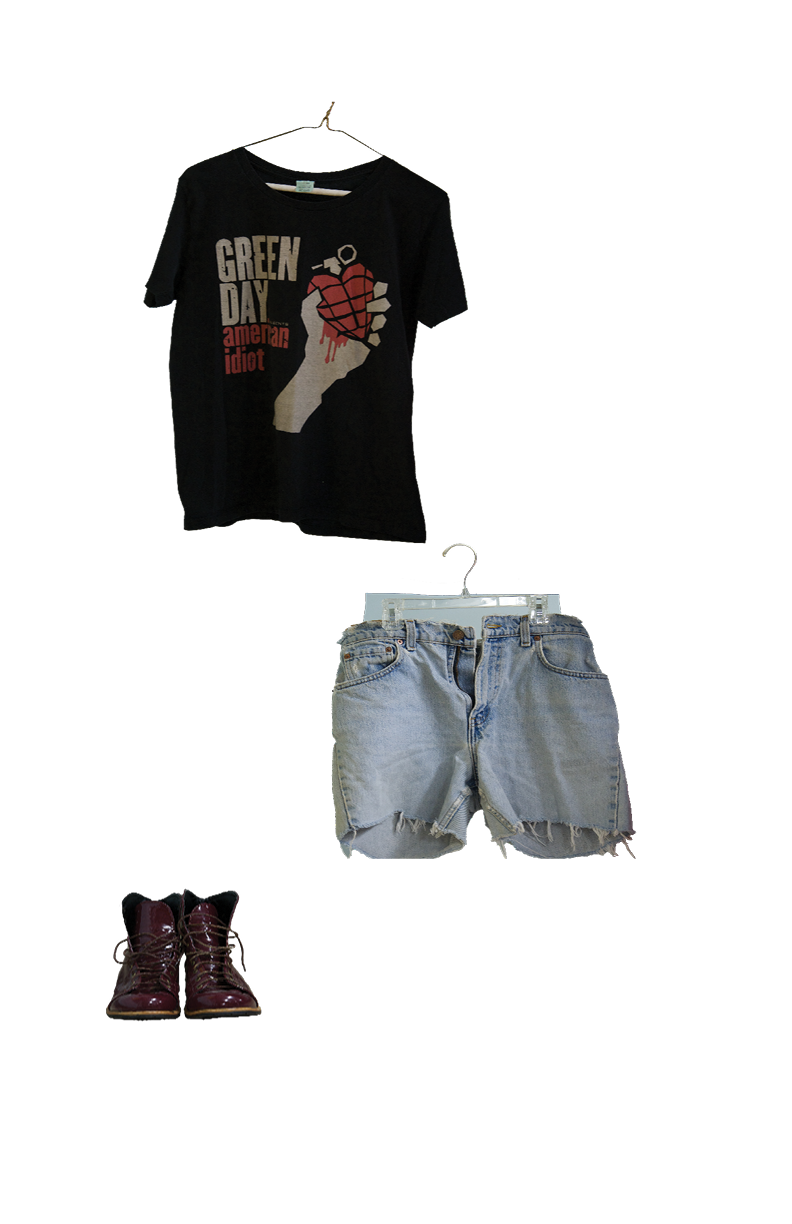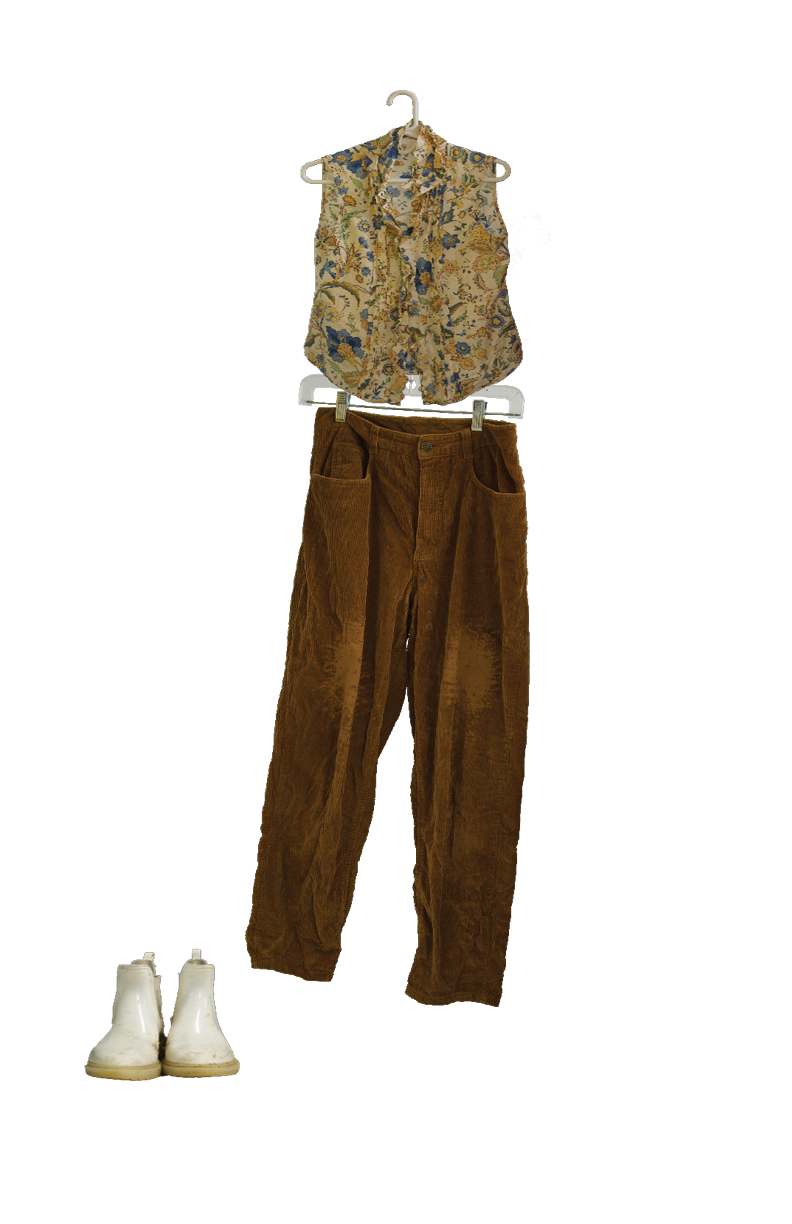Finding Fresh Fashion in the Free Store
Just as winter was beginning last semester, I found myself wanting a pair of white boots. They had to be secondhand, not only for sustainability and cost, but because used clothes are imbued with history. My goal was a chic 1970s look, to act as an extension of the preceding trend of gogo boots from the ’60s. Naturally, I looked to Depop and found a lovely pair of Jeffrey Campell boots from the ’90s — square heels and all.
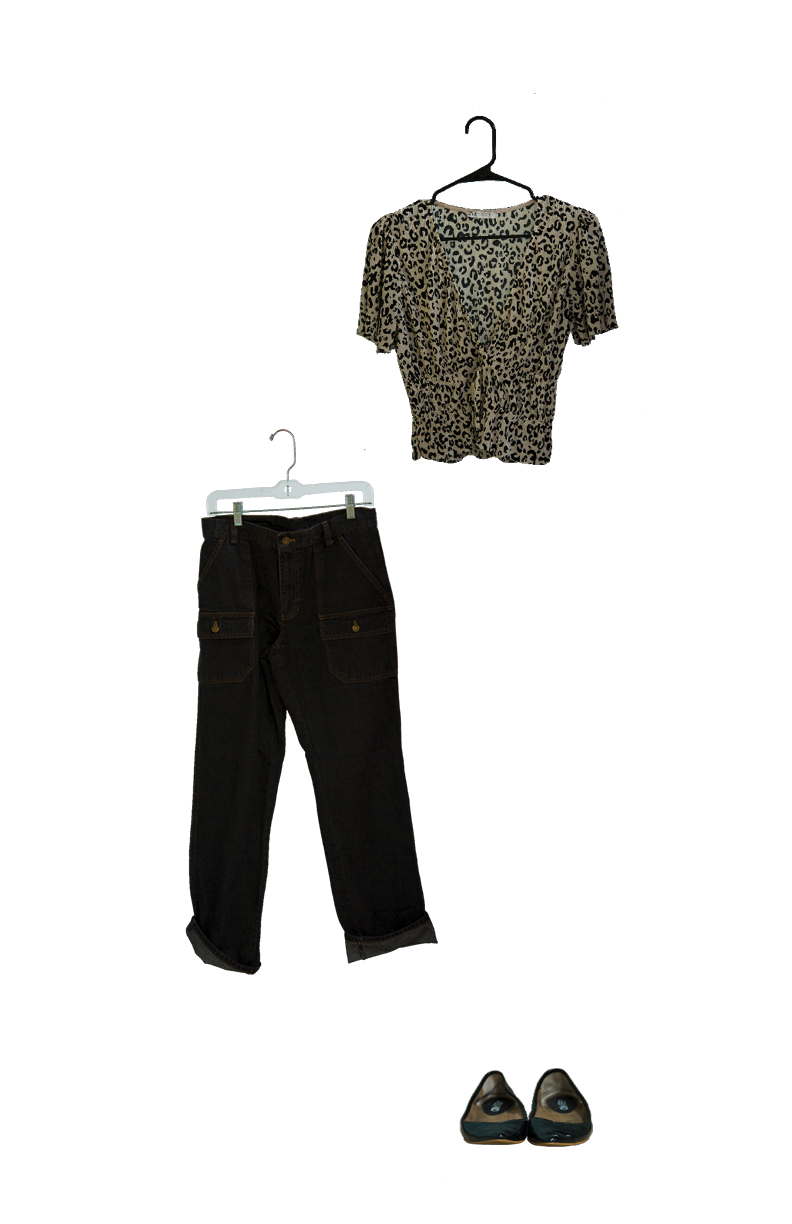 If I had been better acquainted with Oberlin’s Free Store, my search would have started there. Admittedly, though, I hadn’t set foot inside other than to briefly scope out Big Swap at the very beginning of the semester.
If I had been better acquainted with Oberlin’s Free Store, my search would have started there. Admittedly, though, I hadn’t set foot inside other than to briefly scope out Big Swap at the very beginning of the semester.
The concept of a free store feels quintessential to Oberlin culture. Tucked away in the basement of Asia House, just down the hall from the entrance to Pyle Inn Co-op’s kitchen, is an immensely valuable community resource stocked with an eclectic array of baubles, from kitchenware and dorm supplies to perhaps its most recognizable aspect: a myriad of clothing.
To me, there is no better means of self-expression than clothing. The combinations are effectively endless, and what the Free Store offers is an eternal cycle to create more and more possibilities. Fashion is a craft, requiring a collection of tools. These tools can of course be extravagant luxury items, but the Free Store proves that they don’t have to be — you don’t need to spend an hour and a half scouring Depop for something vintage when there’s a resource down the street actively combating the business of resellers overpricing goods that were originally designed to be accessible.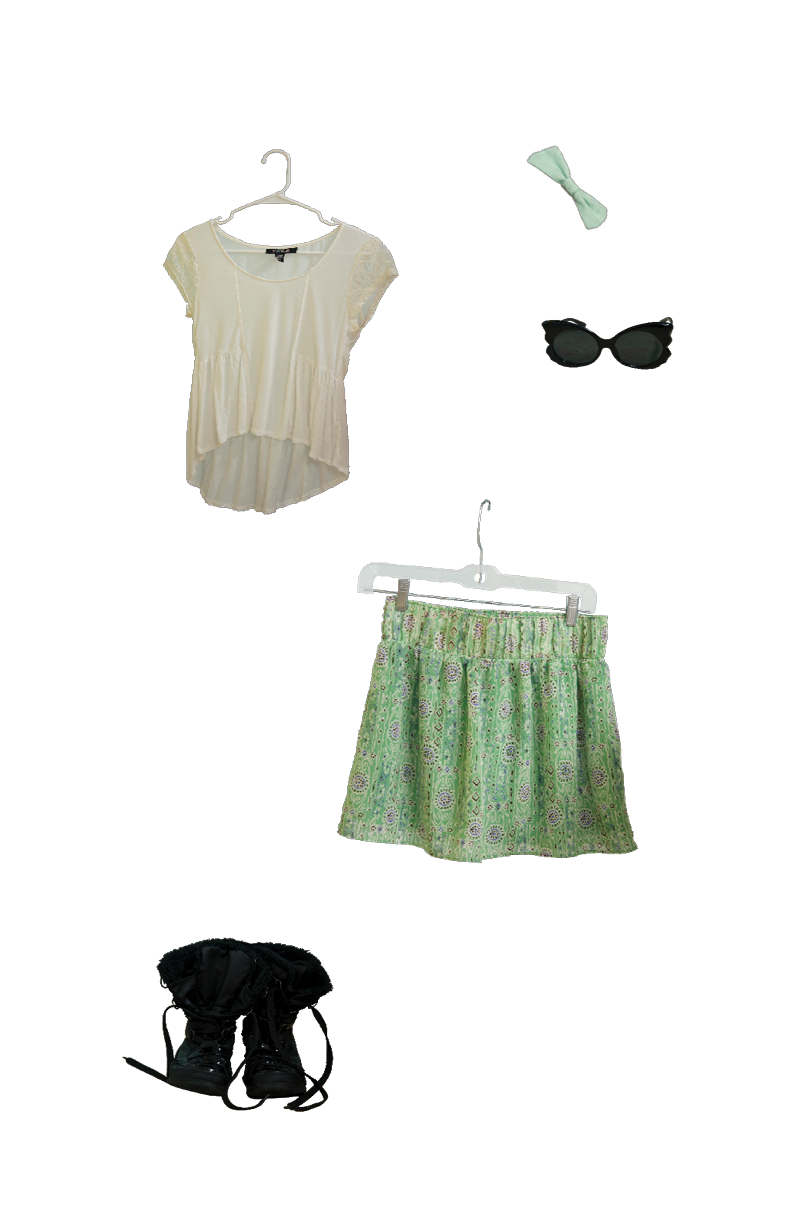
Although there’s a Goodwill two miles away, the Free Store is a resource that can and should be utilized to an even greater extent than it already is. However, its location does raise questions of accessibility, particularly when it comes to the mission of serving the community outside of the student body — entering Asia House without swipe access isn’t an easy feat.
Founded in 2007 by the Resource Conservation Team, the Free Store is based on the ideology of sustainability, community connection, and anti-capitalism in order to establish an independent economy through the exchange of goods.
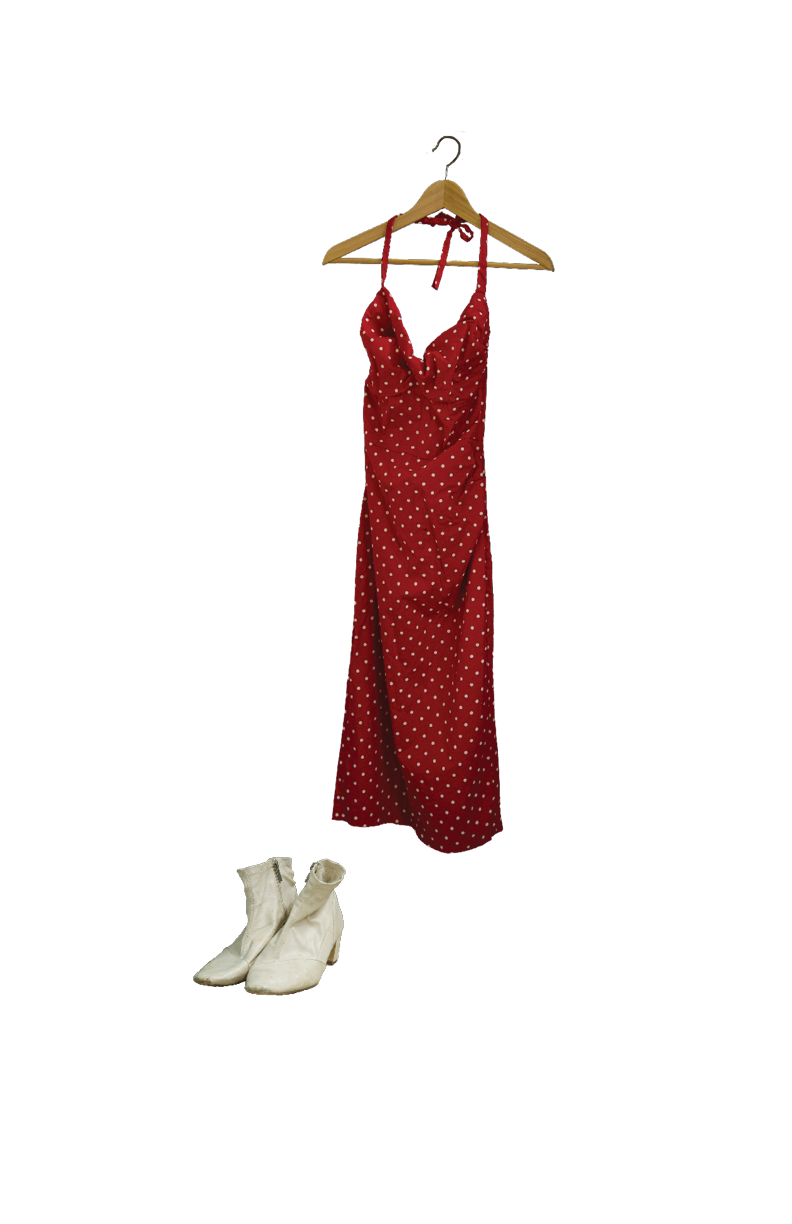
The concept of free stores extends far beyond this college campus, coming out of 1960s bohemianism through The Diggers, a group of radical activists in San Francisco set on confronting capitalism, classism, and systemic racism. Some of the earliest free stores in the area were particularly constructed for, as well as by, members of low-income Black communities.
Oberlin is ideal ground for a free store given the amount of turnover in students, from graduation to study away, with vast collections of possessions that they otherwise might just throw away. More importantly, though, the Free Store ensures the redistribution of wealth at an institution where much of the student body isn’t part of low-income communities. Plus, students bring fabulously unique pieces to the table.
The Free Store is open Monday through Thursday from 7–10 p.m. and Saturday from 3–5 p.m., with Monday’s hours reserved for people of color and low-income individuals. Additional RCT hours include open garden hours at the Johnson House Garden every Sunday from 2:30–4:30 p.m.
All photos by Erin Koo, photo editor